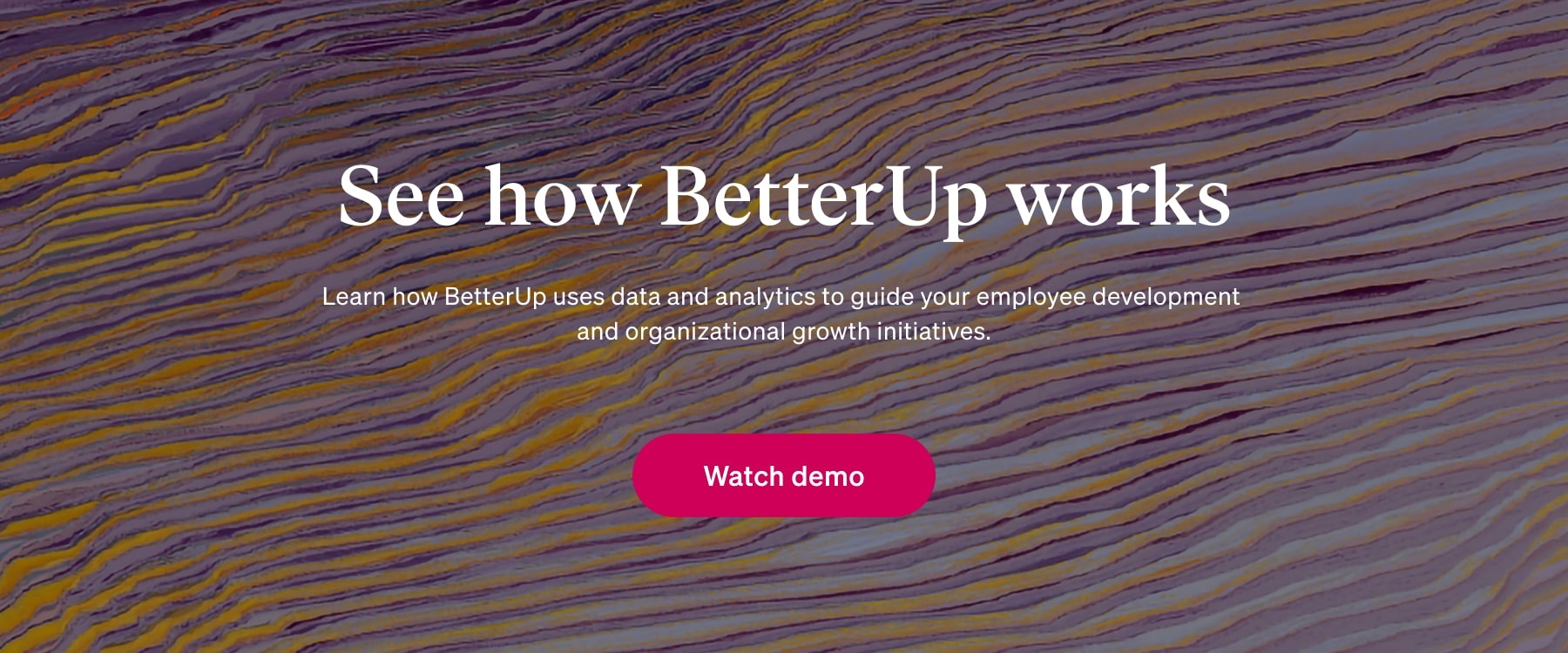-
For Business
For Business
Products
LeadBuild leaders that accelerate team performance and engagement.
Care™Drive productivity through sustained well-being and mental health for all employees with BetterUp Care™.
Solutions
Sales PerformanceTransform your business, starting with your sales leaders.
Diversity & InclusionFoster a culture of inclusion and belonging.
Customers
Case StudiesSee how innovative companies use BetterUp to build a thriving workforce.
- For Individuals
-
Resources
Resources
LibraryBest practices, research, and tools to fuel individual and business growth.
EventsView on-demand BetterUp events and learn about upcoming live discussions.
BlogThe latest insights and ideas for building a high-performing workplace.
ResearchInnovative research featured in peer-reviewed journals, press, and more.
- About

The report your team worked on for months came out today. There’s a glaring error on the second page — and it’s your fault.
Your response says a lot about your ability to practice self-compassion. The mistake may torment you, keeping you up late at night as you wonder how you could have missed such an obvious flaw. It may dominate your thoughts and conversations. It may keep you from bringing up new ideas in meetings or accepting praise for your hard work.
Of course, you might go a different route. You might take a deep breath, apologize for the unfortunate error, and file the experience away as a lesson learned. The old adage is true: Everyone makes mistakes.
This response is one motivated by a deep sense of self-compassion — the extent to which we are able to accept ourselves. Kristin Neff, a leading expert in self-compassion, says there are three elements of self-compassion:
- Self-kindness: A warmth and understanding for ourselves when we suffer, fail, or feel inadequate.
- Common humanity: A recognition that suffering is “part of the shared human experience.”
- Mindfulness: An acceptance of our thoughts and feelings as they arrive.
Self-compassion is not a naturally occurring, fixed trait; it’s a skill people can work on and develop. It benefits us and the people around us, so much so that it should demand employers’ attention.
The power of self-compassion
According to our research, people who are high in self-compassion experience a slew of benefits. They encounter 26% lower stress and 24% less burnout than others. They also see 33% more resilience.

These benefits produce a more tangible payoff — literally. The self-compassion skill translates to a $4,000 boost in annual salary.
Self-compassion doesn’t just benefit individuals; it also contributes to the success of teams, especially when it’s observed in a leader. When a leader is high in self-compassion, their direct reports see a 2% bump in the skill as well, according to our data. These workers also tend to be more committed to their jobs — teams with a self-compassionate leader have lower rates of turnover intention. These teams are also more willing to take risks for innovation and solutions.

Why organizations should promote self-compassion
Self-compassion provides a range of benefits for the individual. It dictates how we receive feedback, how we handle stress, and how we bounce back from challenges. But it also radiates from one person to benefit entire teams of people — especially when it comes from a leader.
However, organizations must take care to equip everyone with self-compassion. In previous BetterUp research, we observed that gaps in self-compassion and empathy among managers and direct reports may contribute to workplace inequalities. We found that managers scored significantly higher for self-compassion than individual contributors. This finding suggests that management may tend to be more forgiving of themselves than their direct reports, a mindset that can lead to poor management practices like overreacting and micromanaging.
To build self-compassion among their ranks, employers may introduce coaching. When people are low in self-compassion, they tend to use coaching for stress management and self-care. This tendency shows that stress is a top issue among those who lack self-compassion. According to BetterUp Data, one in five people who seek coaching on self-compassion conduct sessions around this topic.
Self-compassion is an area many have room to grow in — but it’s a skill that has serious potential for development. Of those who are low in self-compassion at the onset of coaching, about 75% improve within three to four months. Among those, we see their baseline scores of self-compassion nearly double.
These metrics highlight the value of coaching. Coaching helps individuals and managers alike build the self-awareness they need to improve on their strengths and address their weaknesses. They learn to improve emotional regulation, emotional intelligence, communication, and collaboration.
One BetterUp Member reported how their growth in self-compassion impacted their work life.
"I have learned to be kinder to myself which has really helped me in managing my emotions. Controlling my emotions has helped me to manage stressful situations more effectively. I also listen more attentively which has made me a better communicator and enabled me to develop stronger relationships with my co-workers."
When organizations invest in building self-compassion into their workforce, they not only give their employees a foundation skill for professional success — they give them a skill for a successful life.
Erin Eatough, PhD
Sr. Insights Manager





